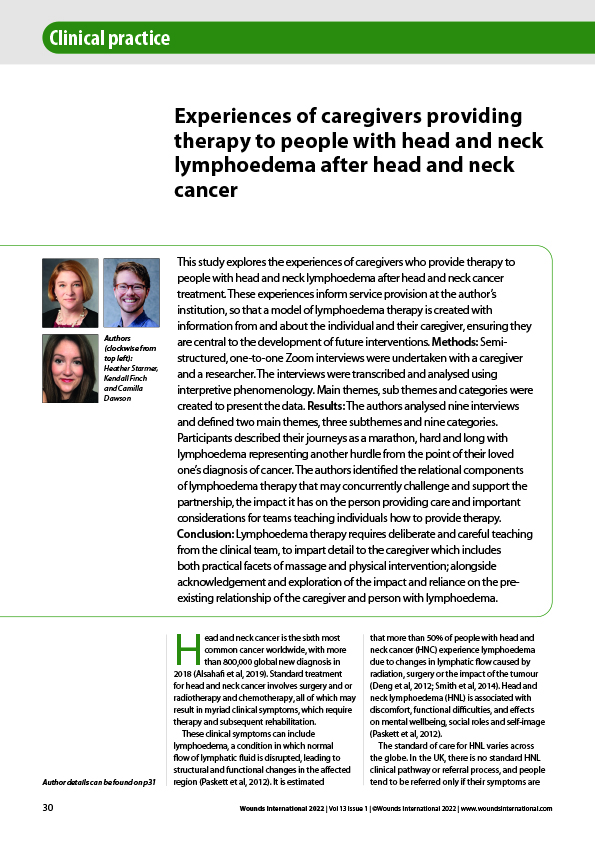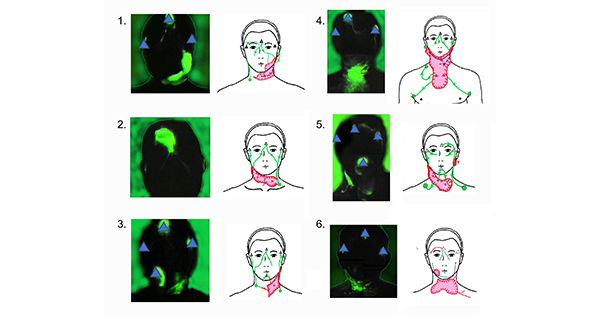This study explores the experiences of caregivers who provide therapy to people with head and neck lymphoedema after head and neck cancer treatment. These experiences inform service provision at the author’s institution, so that a model of lymphoedema therapy is created with information from and about the individual and their caregiver, ensuring they are central to the development of future interventions. Methods: Semistructured, one-to-one Zoom interviews were undertaken with a caregiver and a researcher. The interviews were transcribed and analysed using interpretive phenomenology. Main themes, sub themes and categories were created to present the data. Results: The authors analysed nine interviews and defined two main themes, three subthemes and nine categories. Participants described their journeys as a marathon, hard and long with lymphoedema representing another hurdle from the point of their loved one’s diagnosis of cancer. The authors identified the relational components of lymphoedema therapy that may concurrently challenge and support the partnership, the impact it has on the person providing care and important considerations for teams teaching individuals how to provide therapy. Conclusion: Lymphoedema therapy requires deliberate and careful teaching from the clinical team, to impart detail to the caregiver which includes both practical facets of massage and physical intervention; alongside acknowledgement and exploration of the impact and reliance on the preexisting relationship of the caregiver and person with lymphoedema.



